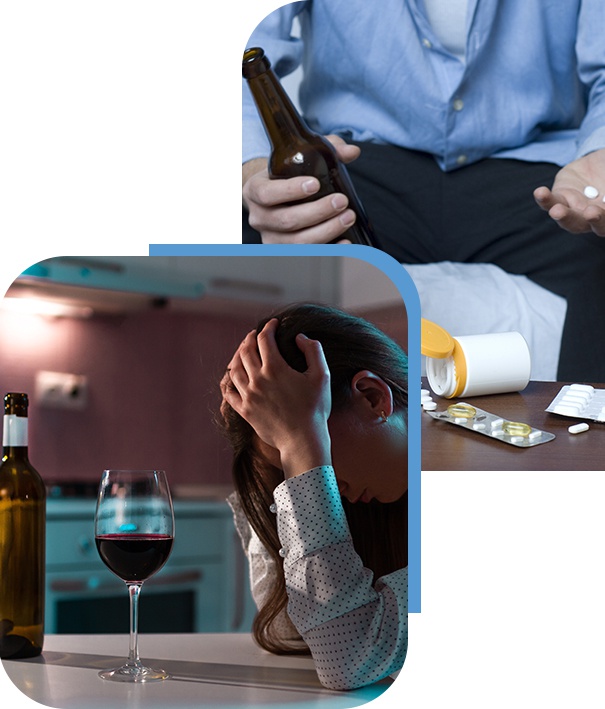Drug And Alcohol Withdrawal Symptoms
Withdrawal symptoms can vary widely from person to person, depending on several factors, such as your age, your general state of physical and mental health, what the substance is and how long you have been using it, your average dose and frequency of doses, and whether you are withdrawing from more than one substance.
It is important to note that some substances have unique withdrawal challenges that need to be managed in very specific ways. For example, alcohol withdrawal can include delirium tremens, sometimes referred to as “the DTs”, characterized by confusion, an irregular heart rate, shaking and sweating. If the patient is not under the care of a doctor, delirium tremens can be life-threatening.
Withdrawal symptoms that occur commonly across many substances include the following:
- Alternating sensations of hot and cold; skin tingling; sweating and/or shivering
- Headaches; light-headedness or dizziness; fainting
- Difficulty sleeping; nightmares or vivid dreams
- Tightness in the chest; difficulty breathing or shortness of breath
- Fast or irregular heartbeat; palpitations; elevated blood pressure
- Muscle aches and pains; cramps; twitches or spasms
- Anxiety; panic attacks; depression
- Irritability; anger or violence directed at self or others
- Confusion; impaired speech; poor memory; inability to focus





